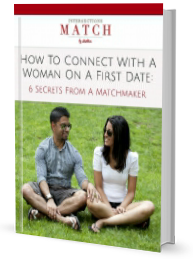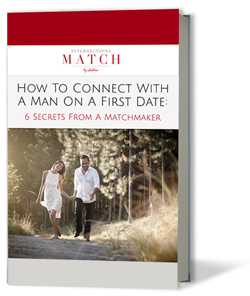[VIDEO] The Road to Romance – Interview with Jasbina
Arlene: Welcome back to The Road to Romance, where we’re spotlighting matchmakers who aren’t just connecting people but challenging the norms of modern dating. And today we’re tackling a big one—the fallout of swipe culture and why personalized matchmaking is making a real comeback. I’m joined by Jasbina Ahluwalia (and I hope I pronounced that correctly), who brings a rare mix of intellectual rigor, cultural insight, and coaching position to this conversation.
She’s been bridging East and West for years, helping Indian and South Asian singles find love with intention, strategy, and heart through Indian matchmaking services. After starting her career as an attorney, she built Intersections Match, a firm that serves Indian and South Asian singles across the US, Canada, and the UK. What I really respect about Jasbina’s approach is that it’s not just dating—it’s strategic and intentional. She’s not just introducing people, she’s helping them date smarter, more consciously, and with a clear sense of what matters.
Jasbina, welcome to the show.
Jasbina: It’s a pleasure to be here, Arlene. Thank you.
Arlene: I’m so happy to have you here. And I just want to begin because, you know, when we talk to matchmakers, there’s such a crazy background of different types of people that are going into this business. And I always say matchmaking is a calling, because I still haven’t figured out that one thing that we all have in common that brings us into this industry. So I always say it is a calling.
But let’s begin with your shift from law to love. What led you to walk away from the legal career and build something so mission-driven in the matchmaking world?
Jasbina: That’s a great question. So you mentioned the cultural backdrop. Let’s start there. I’m what I consider a “don’t date, don’t date, don’t date, hey, get married” person—which is basically in our culture, where a lot of us, myself included, had parents who had arranged marriages. Culturally, that was the norm for a long time, and it still is for some people.
When one has a culture of arranged marriage, then it is: focus on your studies, on your career, on all different things. Then, when arranged, the marriage was the next step, and we proceeded that way. That is great, except I was one of the people, like our clients, for whom the arranged marriage route didn’t quite appeal. Rather than having a commitment and then developing feelings for somebody, I wanted to have those feelings on my wedding day and then build a life together. That is what I wanted, and that is what our clients want.
So what that does is make dating have to be intentional if one wants to get there. For me personally, when I got to a point where I was like, “Okay, I have the career, I have this, I have that—now I’m ready for a serious relationship,” I realized I didn’t have that person. So then I embarked on what I call my adventures in dating. I dated Indian, I dated non-Indian, and ultimately culminated in finding my partner. That’s the path that I help our clients with, as highlighted in our client success stories.
Not all Indians follow the same timeline. There’s the “don’t date, don’t date, okay, get married” path, but there’s also the “don’t ask, don’t tell” path. So some start dating earlier, some later. Each comes with its own challenges. With “don’t date, don’t date,” there’s a learning curve in understanding interpersonal dynamics. With “don’t ask, don’t tell,” sometimes there’s an unlearning curve, because people can develop blocks or project past experiences onto new ones.
That was my journey, and that’s the journey I help our clients with.
Also, I think we’re in a really exciting time in history for women, where we can intentionally design the kind of life we want. The idea of “design a life” resonated with me while I was practicing law. I remember going to a partner in my firm—an old-school guy with a stay-at-home wife—and floating the idea of remote work. He had no idea what I was talking about. It was like a foreign language. At that moment, I realized this career path wasn’t going to fit the life I envisioned.
I wanted something high-impact, where I could use my strengths to help people in ways that really mattered. What’s more important than who you’re going to spend the rest of your life with? That, combined with my background in philosophy and my own cultural and dating experiences, drove me to build a business in matchmaking.
Arlene: And it’s not foreign to your culture—and I’m so pleased to see that in the US it’s becoming more a part of our culture to work with matchmakers. With the disconnect, the loneliness epidemic, AI and technology—it’s not going to replace matchmaking.
You say matchmaking is for singles who value their time over money. I love that. Can you unpack that and what it means for people who are thinking of hiring a matchmaker?
Jasbina: Absolutely. Working with a matchmaker is an investment in one’s life. Many of our clients are highly educated, have invested heavily in their careers, and yet don’t think to invest at the same level in their personal lives. People budget for homes, cars, and education—but not for finding a partner. And yet, what’s more important than who you marry?
From our cultural perspective, weddings can last a week, but the real focus should be on the marriage. Think of all the attention that goes into wedding details—if that same level of intention went into choosing a partner, people would be far better off.
Time is not renewable. Money is. That’s why I always say matchmaking is for people who value their time over money.
Arlene: I couldn’t agree more. Matchmakers spend so much time vetting, sometimes interviewing 20 people before finding one who is right for a client. That’s truly buying your time back. And in your case, as a coach offering dating coaching for professionals, you also help people with how to approach dating—which is huge.
You also believe feedback is the secret sauce of matchmaking. Why is that so powerful compared to dating apps?
Jasbina: Feedback is when a matchmaker independently checks in with both people after a date to see if there’s mutual interest. It cuts through ghosting and false politeness. It’s real and honest.
But beyond that, feedback gives clients a chance to learn and grow. Everyone has blind spots. Feedback saves time, saves emotional energy, and keeps people moving forward rather than burning out. Dating fatigue is real, and feedback keeps people in the game.
There’s no single person who truly wants to be partnered who can’t be—unless they quit. That’s why feedback is so critical. It helps people stay the course, see each experience as a learning opportunity, and ultimately find their partner.
Arlene: I agree. Sometimes people write off a potential match too quickly, but with feedback they realize they should give it another chance—and those second or third dates often lead to real relationships.
My biggest message to daters: do not take yourself out of the game. If you want to be in a committed relationship, stay in the game. That’s why matchmaking is so effective: it’s quality over quantity, and it keeps people engaged and supported.
For those who think matchmaking sounds nice but isn’t for them, what would you say?
Jasbina: It depends on why they think that. I can’t think of a more high-stakes decision than who you spend your life with. Friends and family are supportive, but they have their own anxieties and biases. A matchmaker is fully aligned with you.
Sometimes, it’s not about cheerleading but about holding up a mirror or playing devil’s advocate. My legal training helps here. That can be the breakthrough people need.
Also, the industry now offers many levels of service. It doesn’t have to be a huge investment to get started. There’s likely a matchmaker out there for almost everyone.
Arlene: What I love about your work is the cultural competency. You understand your clients’ backgrounds because you’ve lived it. That’s so important. I always say the first match is your matchmaker.
We also have aspiring matchmakers watching this series. As someone who came from a completely different field, what would you say to them?
Jasbina: It’s a fabulous way to make a high impact in people’s lives. Look at your own skills, background, and experiences—they will shape how you design your service.
Every matchmaker brings something unique. For me, my education, my culture, and my adventures in dating all feed into how I work. For others, it will be different. But the common thread is that your unique experiences will help you attract the clients you are best suited to support.
Remember: the first match is your matchmaker. Figure out who you are the best matchmaker for.
Arlene: Absolutely. Jasbina, thank you so much for this rich conversation and for being such a thoughtful force in our space. You’ve given our audience so much clarity around what’s really happening in modern dating and how matchmaking is becoming the antidote to dating fatigue.
Jasbina: My pleasure, Arlene.
Questions a Single Person Might Ask After Watching Arlene’s Video
1. What exactly is “feedback” in matchmaking, and how does it help me date better?
Singles want to understand how feedback works, what kind of insights they get, and how it might help them stop repeating old dating patterns.
2. Why is feedback such a big deal in matchmaking compared to dating apps?
Singles are wondering how feedback actually improves their dating experience and whether it helps avoid ghosting, confusion, and wasted emotional energy.
3. How does hiring a matchmaker save time if I already have a busy career and limited free hours?
This speaks to Jasbina’s point about matchmaking being for people who value time over money.
4. What does a matchmaker actually do behind the scenes to find the right match for me?
Singles want clarity on the vetting, interviews, and personalized selection process.
5. How intentional and involved do I need to be when working with a matchmaker?
Because the video emphasizes conscious dating and personal clarity.
6. If I’ve been burned out by apps, how will matchmaking help me avoid dating fatigue?
Singles want reassurance that matchmaking isn’t just “another process” that drains them emotionally.
7. What if I tend to write people off too quickly—how will matchmaking help me give the right people a chance?
This ties directly to feedback and second-date encouragement.
8. How personalized is the matchmaking process? Will someone really get to know my cultural background, values, and relationship goals?
Important especially in contexts like Indian/South Asian matchmaking.
9. How do matchmakers make sure they’re aligned with me and not projecting their own preferences?
Inspired by Jasbina’s point about her legal training and acting as a mirror, not a cheerleader.
10. What kind of singles benefit the most from hiring a matchmaker? Am I one of them?
Singles want to know if they’re the right fit for the service.
11. How do matchmakers help me avoid repeating old relationship patterns?
A single might ask this based on the conversation about mindset, intentionality, and blind spots.
12. How quickly can matchmaking help me meet quality people compared to apps or meeting people organically?
Singles care about efficiency and results.
Frequently Asked Questions
What is Intersectionsmatch and how is it different from traditional dating?
Intersectionsmatch combines curated introductions with
coaching to align dating actions with long-term goals.
Instead of chasing quantity, it emphasizes clarity, cultural fit, and high-quality matches so singles
date with strategy and purpose.
How does the feedback process work after a date?
After each introduction, the matchmaker independently checks in with both parties to confirm mutual interest
and surface constructive insights. This reduces ghosting, reveals blind spots, and accelerates growth
so clients make better decisions faster.
Who is Intersections Match best suited for?
Professionals—especially Indian and South Asian singles across the United States, Canada, and the United Kingdom—
who value their time, want culturally competent guidance, and prefer a strategic, marriage-minded approach
to finding a partner.
Why choose a matchmaker instead of dating apps?
Matchmaking replaces swipe fatigue with vetted, values-aligned introductions and expert guidance.
You trade endless filtering for targeted outreach, cultural understanding, and ongoing support
that helps you stay consistent and optimistic.
What does “valuing time over money” mean in this context?
Time is non-renewable. Investing in a matchmaker buys back time otherwise lost to low-yield searching,
mismatches, and emotional burnout. The goal is to reach the right relationship more efficiently and sustainably.
Is matchmaking only for Indian or South Asian singles?
Intersections Match specializes in Indian and South Asian professionals and welcomes those who value
cultural competence. The focus is on aligned values, life goals, and relationship readiness.
What if I feel burned out by dating or tempted to take a long break?
Sustainable progress comes from staying in the game with the right structure. Guided feedback, measured pacing,
and curated matches preserve emotional energy and momentum while you continue working on personal growth.
What role does coaching play alongside introductions?
Coaching supports clarity on essentials, improves communication, and helps unlearn unhelpful patterns.
Paired with feedback after dates, it turns each interaction into actionable learning that compounds over time.
Do you work with clients who date outside their culture or religion?
Yes. Clients define their essentials. Cultural and religious preferences are respected, and the search strategy
is tailored to honor those priorities while remaining open where clients choose to be.
Where do you provide services?
Services focus on Indian and South Asian professionals primarily across the United States, Canada,
and the United Kingdom, with virtual coaching and curated outreach to relevant networks.



